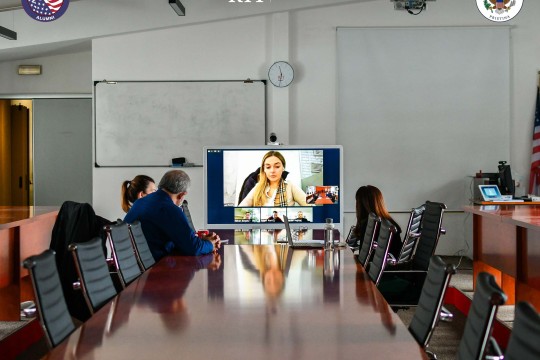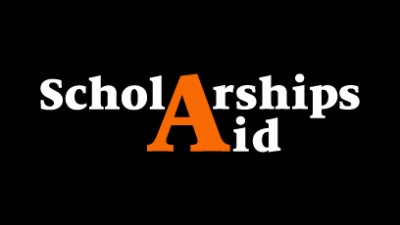
Venera Demukaj
Assistant Professor
Venera Demukaj
Assistant Professor
Bio
Dr. Venera Demukaj is an Assistant Professor of Economics at the Rochester Institute of Technology in Kosovo. She has a Ph.D. in Political Economy with a focus on foreign aid in post-war countries. She teaches Development Economics; Natural Resource Economics; Environmental Economics; International Trade and Finance; and Senior Capstone. Dr. Demukaj also coordinates and supervises Honors students’ research projects. In addition to teaching, Dr Demukaj has also participated in administrative duties, serving as an Associate Dean for Academic Affairs during 2021-2023.
In 2015 she was awarded a Fulbright Scholarship and spent four months as a visiting scholar at West Virginia University with a focus on energy sector developments. Dr Demukaj has also been involved in several national and regional projects as a team leader or principal investigator. Currently she is leading STEM for ALL STEFORA project co-financed by the Erasmus+ program focused on capacity building of HEIs for STEM education.
Dr. Demukaj is a member of the Advisory Board of the GAP Institute in Prishtina and a member of the CEFTA LSEE Academic Network in London. Her main research interests are post-conflict transitions; foreign aid; diversity, inclusion, and women empowerment.
Select Scholarship
Publications
2023. “Gender Stereotypes and Women Participation in STEM Fields in the Western Balkans: A Scoping Review” with Ferati, M. & Kurti, E. & Mörtberg, C. & Shahrabi, K.& Kerolli-Mustafa, M. Academic Journal of Interdisciplinary Studies. 12. 228. 10.36941/ajis-2023-0044.
2022. “Challenges and Opportunities for Women Studying STEM” with Ferati, M. & Kurti, A. & Mörtberg, C. Published in: ICT Innovations 2022. Reshaping the Future Towards a New Normal. ICT Innovations 2022: 14th International Conference, ICT Innovations 2022, Skopje, Macedonia, September 29 – October 1, 2022 / [ed] Zdravkova, K., Basnarkov, L., Springer, 2022, Vol. 1740, p. 147-157.
2021. “Does aid fuel corruption? New evidence from a cross-country analysis” with Krasniqi, A. Development Studies Research, 8:1, 122-134.
2019. “Gender Stereotypes and Educational Choices in Kosovo” with Maloku, E. & Beqa, A. Research report. Center for Social Studies and Sustainable Development, Prishtina.
2019. “Regional Integration, Trade and Development in the Balkans: A Dynamic Poisson Approach” with Uberti, L.J. LSEE-CEFTA Research Papers on International Trade. Research Paper No. 3.
2018. Book chapter: Poverty, Inequality and Foreign Aid published in Kosovo’s Economy. Riinvest, Prishtina.
2015. “When corruptive behavior becomes a rule, not an exception: Use of abusive practices for private benefit in higher education institutions in Kosovo” with Maloku, E. Proceeding of the International Conference on Good Governance in Developing Countries’. University of Tirana. ISBN: 978-99956-95-49-1
2014. “The political economy of regulation in post-war Kosovo: intended and unintended consequences of external actors’ involvement – Introduction” with LeMay-Hebert, N. & Uberti, L.J. Eastern European Politics.
Selected Projects
2023 – 2024. STEM for ALL STEFORA, co-financed by Erasmus+ Program of the European Union. Project coordinator. https://steforaproject.com/
2020 - 2022. Generation Z enters STEM, supported by the Swedish Foundation for International Cooperation in Research and Higher Education. Co- principal investigator.
2018 - 2019. Gender Stereotypes and educational choices in Kosovo, supported by Swiss Development Cooperation. Co- principal investigator.
2012 – 2013. Economic Development and Political Transition in Kosovo, supported by USAID BEEP/Balkan Trust for Democracy. Principal Investigator.
2012-2013. Education Specific Corruption in Western Balkans, Regional Research Promotion Project. Team leader for Kosovo.
Scholarships and Awards
2016. First Prize for the Best Paper Competition (co-authored with Luca J. Uberti). Launched by the Research Unit of SEE at the London School of Economics supported by the Secretariat and the CEFTA Chair Office.
2015. Fulbright Scholarship Award—Visiting Scholar Program. West Virginia University.
2010. Ph.D. Internship Program. United Nations University-World Institute for Development Economics Research (UNU-WIDER) Helsinki, Finland.
2007 – 2010. University of Trento, Italy. Merit-based scholarship, doctoral program in International Studies.
2004 – 2005. Deutscher Akademischer Austauschdienst (DAAD) Scholarship.
Currently Teaching
In the News
-
March 14, 2023

RIT Kosovo (A.U.K.) attended the Global Governance Summit at RIT Dubai
The RIT Kosovo (A.U.K) President, Kamal Shahrabi and RIT Kosovo (A.U.K) Faculty, Albina Balidemaj, Robert Muharremi, and Venera Demukaj participated in the Global Governance Summit held at RIT Dubai.
The event gathered representatives from the Academic Senates and the Presidents from the Rochester Campus in New York and the global campuses in China, Croatia, Kosovo, and the United Arab Emirates. -
April 7, 2022

Streamlining Curricular Development
On March 25, 2022, the project team organized the workshop with the representatives of the Higher Education Institutions in Kosovo, form the ICT and Energy sector, as part of the project “Streamlining Curricular Development Processes and Establishment of the Task Force for Curricular Development”, funded by the University Support Grant Program of the U.S. Embassy in Prishtina and administered by KUSA, and implemented by RIT Kosova (A.U.K).
-
November 21, 2021

Streamlining Curricular Development Processes and Establishment of the Task Force for Curricular Development
On December 14, team of the project “Streamlining Curricular Development Processes and Establishment of the Task Force for Curricular Development”, funded by the University Support Grant Program of the U.S. Embassy in Prishtina and administered by KUSA.










